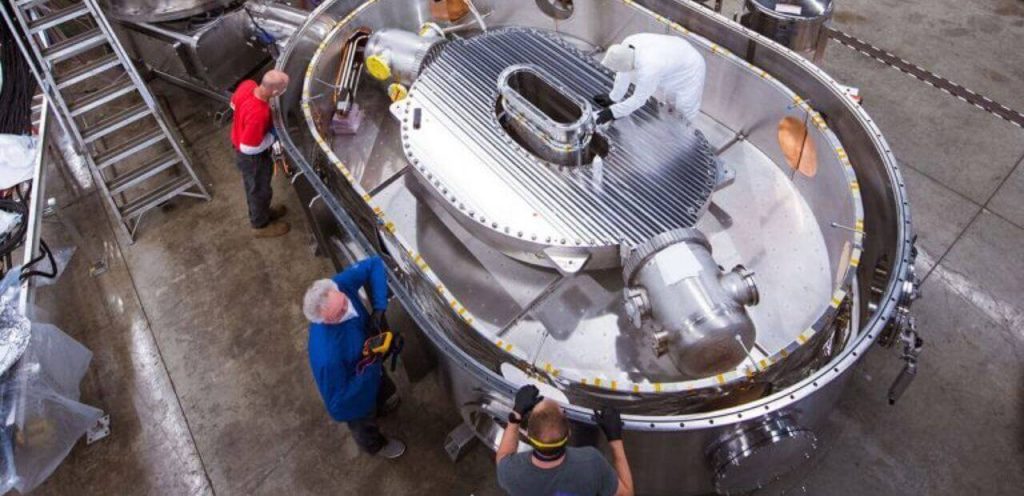To become a Biomedical Technician, you typically need a two-year associate or four-year bachelor’s degree in Biomedical Equipment Technology or related fields. These educational paths equip you with the necessary skills for a rewarding career in healthcare technology.
Biomedical technology is a dynamic field that integrates engineering principles with healthcare, focusing on human health and diseases. Biomedical Technicians play a crucial role in maintaining and repairing high-tech medical equipment, making it a fulfilling career choice for those interested in technological advancements in healthcare.
Obtaining the right education and training is essential to succeed in this field and meet the demands of this specialized profession. Whether you choose to pursue an associate’s or bachelor’s degree, the path to becoming a skilled Biomedical Technician requires dedication and a passion for improving patient care through innovative technology.
Credit: madisonville.kctcs.edu
Educational Paths
Aspiring Biomedical Technicians have various educational paths to choose from, depending on their career goals and level of commitment. Two common educational routes include obtaining an Associates degree or a Bachelor’s degree in related fields.
Associates Degree In Biomedical Equipment Technology
Duration: Typically a two-year program
Courses: Basic electronics, medical equipment maintenance, troubleshooting techniques
Provides foundational knowledge for entry-level positions as Biomedical Technicians
Bachelor’s Degree In Biomedical Engineering
Duration: A four-year program
Curriculum: Advanced courses in biology, chemistry, engineering principles
Offers comprehensive education in designing and maintaining medical devices
Becoming A Bmet
Begin a rewarding career as a BMET by pursuing a two-year associate or four-year bachelor’s degree. As a Biomedical Technician Education student, gain expertise in technology and engineering for medical devices. Secure job readiness through coursework in electronics, troubleshooting, and customer service to excel in this dynamic field.
Obtaining A Degree
One of the first steps towards becoming a Biomedical Equipment Technician (BMET) is obtaining a degree in the field. While some employers may hire technicians without a degree, having one will significantly increase your employment prospects and make you more competitive in the job market. There are various educational paths you can take to become a BMET, including a two-year associate’s degree or a four-year bachelor’s degree in Biomedical Equipment Technology, Biomedical Engineering, Electronics, or Computer Science.
These degree programs provide students with the necessary knowledge and skills to work with medical devices and technology in a healthcare setting. They cover topics such as hardware, software, troubleshooting, basic electronics, schematics, pneumatics, and customer service. The coursework also emphasizes the importance of adhering to the environment of care (EOC) and understanding the specific needs of medical equipment.
Depending on the program, you may also have the opportunity to gain practical experience through internships or co-op placements, allowing you to apply your skills in real-world settings. This hands-on experience can be invaluable when transitioning into a professional role as a BMET.
Employment Prospects Without Formal Training
While obtaining a degree is highly recommended, there are some cases where individuals can find employment as BMETs without formal training. However, these opportunities are limited, and having a degree will undoubtedly open more doors for you. Employers generally prefer candidates who have completed a recognized educational program and possess the necessary knowledge and skills to excel in the role.
Without a degree, you may face challenges when competing for job openings, and your earning potential may be lower compared to those with formal education. Additionally, your advancement opportunities within the field may be limited without the foundation provided by a degree program.
It’s important to note that while a degree is advantageous, continuous learning and staying up-to-date with advancements in biomedical technology are essential for success in this field. Employers value technicians who are willing to enhance their knowledge and skills through professional development and certifications.
Duties And Salary
Biomedical technicians play a vital role in healthcare by maintaining and repairing medical equipment. To enter this field, a two-year associate degree in biomedical equipment technology or engineering is typically required. With a median salary of around $49,000 annually, it presents a promising career choice for those interested in healthcare technology.
Roles And Responsibilities Of A Biomedical Technician
A Biomedical Technician is a highly skilled professional responsible for the maintenance, repair, and calibration of medical equipment used in healthcare facilities. They play a crucial role in ensuring that all biomedical equipment is functioning properly, accurately, and safely.
The roles and responsibilities of a Biomedical Technician include:
Performing routine inspections, preventive maintenance, and repairs on various medical devices and equipment
Diagnosing issues and troubleshooting problems with medical equipment
Calibrating and testing equipment to ensure accuracy and adherence to standards
Collaborating with healthcare professionals to understand equipment requirements and provide technical support
Keeping accurate records of maintenance activities, repair work, and equipment inventory
Staying up-to-date with the latest advancements in medical technology and equipment
Ensuring compliance with safety regulations and quality standards
Salary Prospects In The Field
The field of Biomedical Technology offers excellent salary prospects for professionals who have the necessary education and skills. The demand for qualified Biomedical Technicians is consistently growing, leading to competitive compensation packages.
The average annual salary for a Biomedical Technician can vary depending on factors such as experience, location, and employer. According to the U.S. Bureau of Labor Statistics, the median annual wage for Medical Equipment Repairers, which includes Biomedical Technicians, was $52,730 as of May 2020.
It’s important to note that individuals with advanced certifications and specialized expertise in specific types of medical equipment may earn higher salaries. Additionally, professionals who work in larger healthcare facilities or metropolitan areas often have access to better salary opportunities.
Overall, a career as a Biomedical Technician offers not only competitive compensation but also the satisfaction of contributing to the well-being of patients by ensuring that medical equipment is operating at its best.
Certification
To qualify as a Biomedical Technician, you can pursue a two-year associates or four-year bachelor’s degree in Biomedical Equipment Technology or Biomedical Engineering. Additionally, an associate’s degree in Electronics or Computer Science, combined with on-the-job training, can also be a pathway to this profession.
Certification programs are available for aspiring BMETs, providing training on hardware, software, and troubleshooting for medical devices.
Importance Of Bmet Certification
BMET certification is a crucial component of a biomedical technician’s education and career. It not only validates their skills and knowledge but also opens up numerous opportunities for growth and advancement in the field. As a certified BMET, professionals gain a competitive edge in the job market, demonstrating their commitment to excellence and adherence to industry standards. Here are a few reasons why earning a BMET certification is essential:
Enhanced Employability: Having a BMET certification increases the chances of getting hired by reputable healthcare organizations. Employers often prioritize certification when hiring biomedical technicians as it ensures that candidates have acquired the necessary expertise and are capable of performing their roles effectively.
Expanded Job Opportunities: Many job postings for biomedical technicians explicitly mention BMET certification as a requirement. Holding a certification not only meets these criteria but also allows professionals to apply for a wider range of positions, including those with higher levels of responsibility and compensation.
Professional Development: BMET certification is a testament to a technician’s commitment to ongoing learning and improvement. Being certified means staying up-to-date with the latest advancements in technology and best practices in the field. It demonstrates a willingness to continuously develop skills, which can lead to higher job satisfaction and career growth opportunities.
Standardization of Knowledge: BMET certification ensures that biomedical technicians possess a standardized set of skills and knowledge. This standardization establishes a benchmark for competency within the industry, allowing employers and healthcare facilities to trust in the abilities of certified technicians to deliver high-quality services.
Bmet Certificate Requirements
To obtain a BMET certificate, candidates must meet specific requirements that demonstrate their proficiency in the field. While the exact requirements may vary depending on the certifying organization, some common prerequisites include:
Educational Background: Candidates typically need to have completed a formal education program in biomedical equipment technology or a related field. This can include an associate’s degree or a bachelor’s degree in Biomedical Engineering, Biomedical Equipment Technology, Electronics, or Computer Science.
Experience: Some certification programs require candidates to have a certain amount of work experience in the biomedical technology field. This hands-on experience ensures that candidates have practical knowledge of the equipment, systems, and processes they will encounter in their roles.
Coursework: Candidates may need to complete specific courses or modules related to biomedical equipment technology. These courses cover various aspects, such as basic electronics, schematics, pneumatics, hydraulics, customer service, environment of care, and troubleshooting.
Examination: Most BMET certification programs require candidates to pass a rigorous examination that assesses their understanding of the field and their ability to apply their knowledge in practical scenarios. This examination tests knowledge in areas such as hardware, software, troubleshooting, and medical device regulations.
Meeting these requirements and earning a BMET certificate helps professionals establish their credibility and expertise in the field of biomedical technology. It exhibits their commitment to professionalism and sets them apart as qualified and competent individuals in their industry.
Biomedical Technology
Biomedical technology encompasses the application of engineering principles and technology to biological systems, specifically focusing on human health and diseases. It plays a crucial role in advancing medical devices, diagnostic equipment, and treatment procedures. As a cutting-edge field, biomedical technology offers an array of career opportunities for individuals passionate about bridging the gap between engineering and healthcare.
Application Of Engineering Principles To Biological Systems
This subfield of engineering involves the utilization of technological expertise within the biological context. From designing medical equipment to implementing innovative solutions for healthcare, the application of engineering principles to biological systems, remains at the forefront of biomedical technology.
Relation To Biomedical Engineering And Biotechnology
Biomedical engineering and biotechnology are subsumed within the broader umbrella of biomedical technology. Although each field has its distinctions, they collectively contribute to the advancement of medical science, healthcare, and overall well-being of individuals. The seamless integration of these disciplines under the banner of biomedical technology has amplified the pace of innovations in the healthcare industry.
Education And Training Requirements
Biomedical technicians play a crucial role in the healthcare industry, maintaining and repairing medical equipment to ensure they function accurately. To become a proficient biomedical technician, individuals must meet specific education and training requirements to secure employment in this field.
Associate’s Degree In Biomedical Technology Or Engineering
One of the main pathways for individuals aspiring to become biomedical technicians is obtaining an associate’s degree in biomedical technology or engineering. This level of education equips students with foundational knowledge in biomedical equipment technology, electronics, and computer science. Coursework typically covers subjects such as basic electronics, schematics, pneumatics, and customer service, providing a comprehensive understanding of the technical aspects of medical equipment maintenance.
Requirement Of A Bachelor’s Degree For Specialized Equipment
While an associate’s degree can establish a strong foundation, some specialized medical equipment may require a higher level of education. In such cases, a bachelor’s degree in biomedical engineering may be necessary to grasp the intricacies of the advanced technology incorporated in these devices. This degree program delves deeper into the engineering principles relevant to the domain of living systems, emphasizing human health and diseases, thereby enabling individuals to handle complex biomedical equipment effectively.
Bmet Degree Programs
Biomedical Equipment Technicians (BMETs) play a crucial role in the healthcare industry by ensuring that medical equipment is properly functioning. Pursuing a degree in BMET equips individuals with the necessary skills and knowledge to excel in this field.
Available Degree Programs For Aspiring Biomedical Technicians
Aspiring Biomedical Technicians can choose from several degree programs tailored to provide them with the foundational knowledge and practical skills required in this field. Some of the commonly pursued degree programs include:
Associate’s Degree in Biomedical Equipment Technology: This program offers a comprehensive overview of equipment management and maintenance.
Bachelor’s Degree in Biomedical Engineering: Equips students with a deeper understanding of the technical aspects of biomedical equipment.
Associate’s or Bachelor’s Degree in Electronics or Computer Science: Provides a strong foundation in electronics and computer systems, which are essential for BMET roles.
Comprehensive Overview Of Equipment And Technology Management
One of the key focuses of BMET degree programs is to provide students with a comprehensive understanding of equipment and technology management in the healthcare setting. Students learn how to:
Properly maintain and repair medical equipment
Ensure the safety and reliability of healthcare technologies
Implement best practices for equipment calibration and testing
Credit: commed.miracosta.edu
Credit: www.zippia.com
Frequently Asked Questions
How Long Does It Take To Be A Biomedical Technology?
Earning a biomedical technology degree takes around 2 to 4 years, depending on the program. An associate or bachelor’s degree in biomedical equipment technology is commonly required. Some employers may hire technicians without a degree, but having one is recommended for competitiveness.
Can You Become A Bmet Without A Degree?
Yes, you can become a BMET without a degree, but having a degree is recommended for competitiveness in the field.
Is Biomedical Technology A Good Career?
Biomedical technology is a rewarding career in healthcare for those who enjoy working with high-tech equipment. It offers good pay for the level of education required. A two-year associate degree or four-year bachelor’s degree in biomedical equipment technology or engineering is typically needed.
What Is Bmet Certification?
A BMET certification is a Biomedical Equipment Technician certificate focusing on medical device hardware, software, and troubleshooting skills.
Faq 1: How Long Does It Take To Become A Biomedical Technician?
Biomedical technicians can enter the field through a two-year associate’s or four-year bachelor’s degree program in Biomedical Equipment Technology, Biomedical Engineering, Electronics, or Computer Science.
Faq 2: Can I Become A Biomedical Technician Without A Degree?
While some employers may hire biomedical technicians without a degree, having an associate’s or bachelor’s degree is recommended to be competitive in the field.
Faq 3: Is Biomedical Technology A Good Career Choice?
For those interested in healthcare and enjoy working with high-technology equipment, a career as a biomedical technician can be a rewarding option, considering the level of education needed versus the pay rate.
Faq 4: What Is Bmet Certification?
BMET certification stands for Biomedical Equipment Technician certification. It involves studying hardware, software, and troubleshooting for medical devices, as well as acquiring skills in basic electronics, schematics, pneumatics, hydraulics, customer service, environment of care (EOC), and troubleshooting.
Faq 5: What Is Biomedical Technology?
Biomedical technology is the application of engineering and technology principles to living or biological systems, with a focus on human health and diseases. It is often referred to as Biomedical Engineering or Bioengineering.
Faq 6: What Are The Education And Training Requirements For A Biomedical Technician?
Typically, an associate’s degree in biomedical technology or engineering is sufficient for entry into the field. However, some positions may require a bachelor’s degree, especially for working with more specialized equipment.
Conclusion
Pursuing a career as a Biomedical Technician offers a rewarding pathway in the healthcare industry. With various educational avenues and a demand for skilled professionals, this field provides an exciting opportunity for those interested in technology and healthcare. Consider the benefits of a degree in Biomedical Equipment Technology or Engineering to excel in this dynamic and fulfilling career.









